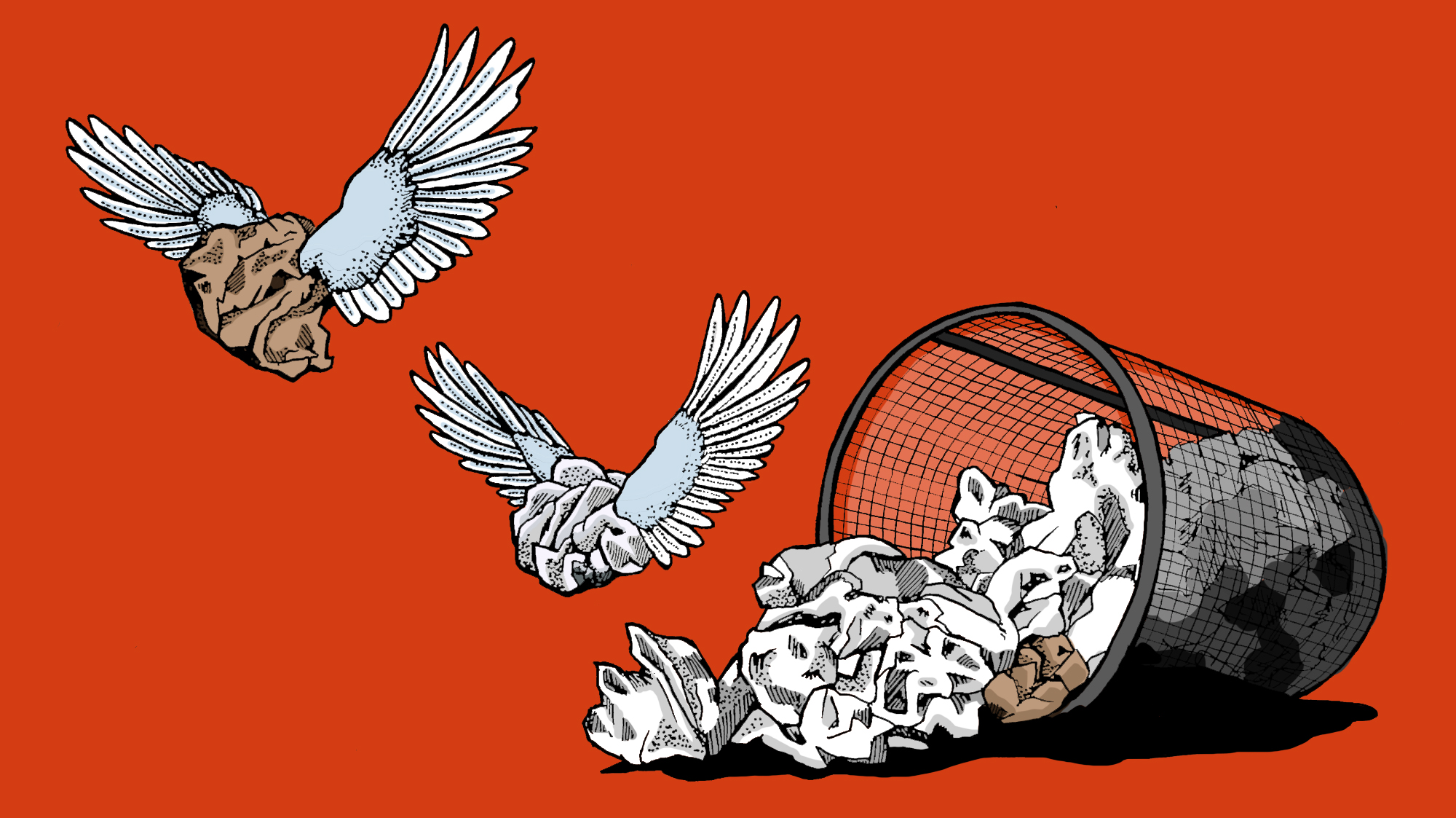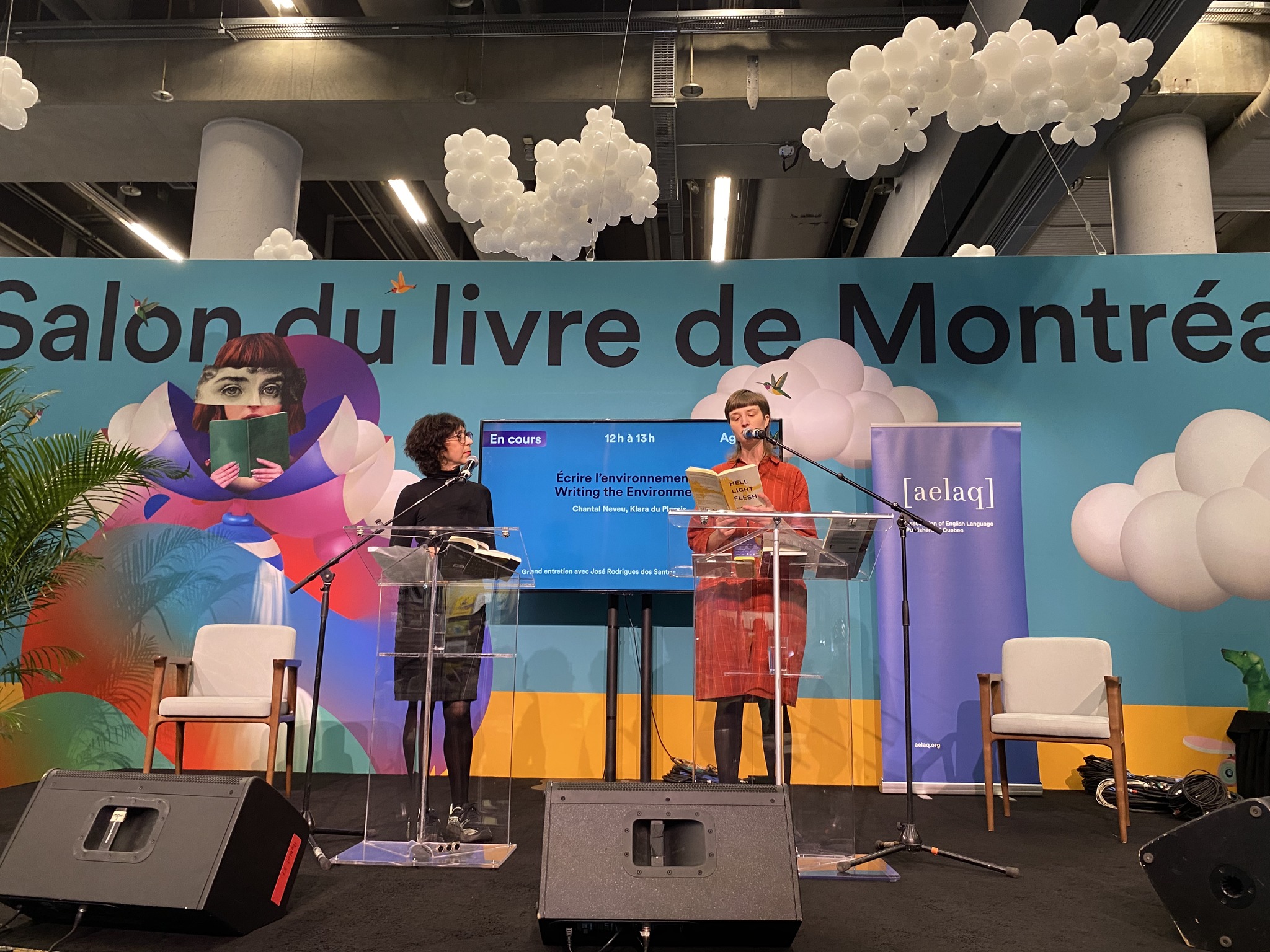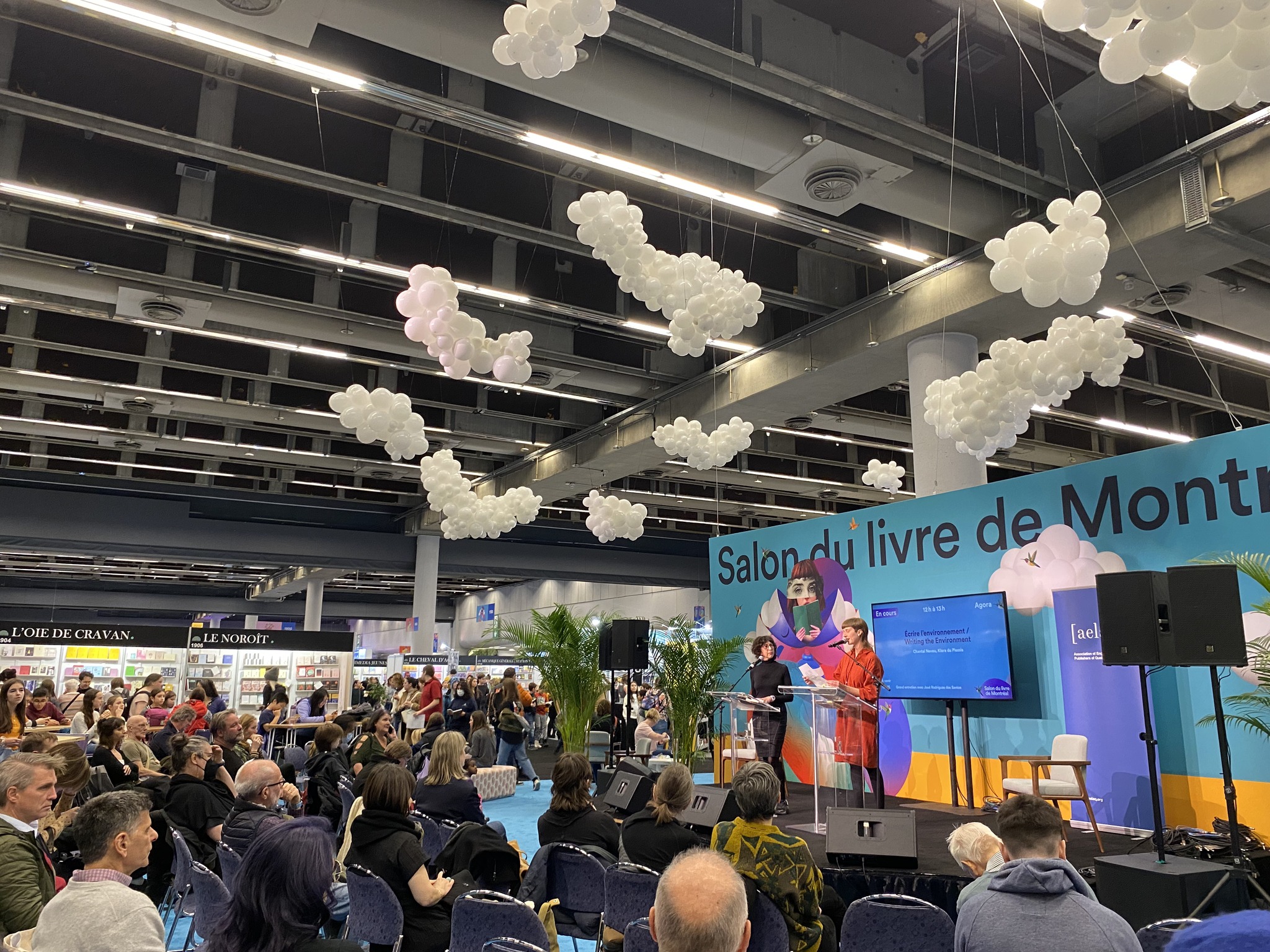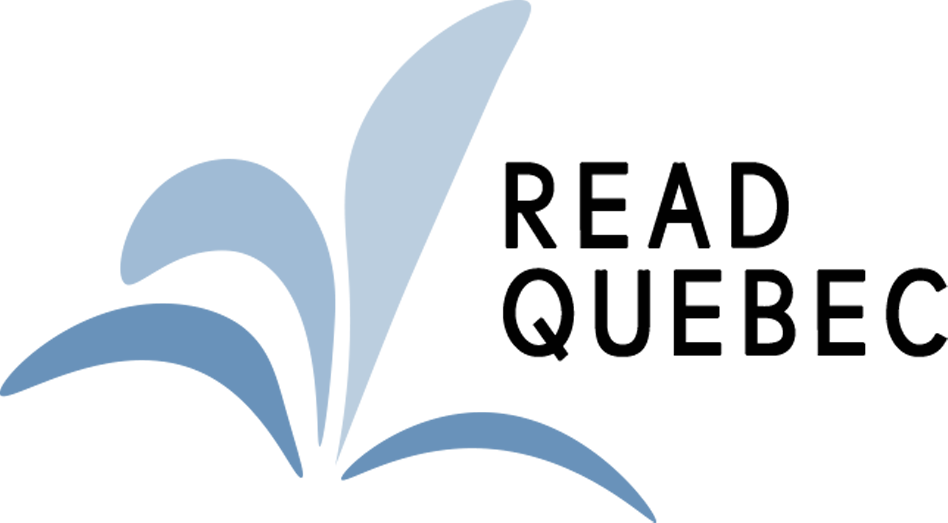By Klara du Plessis

Failure is a hot topic. Montreal’s Phi Foundation recently put out a call for lectures on unsuccessful art projects under the heading “Fail / Pass.” Eavesdropping London, a UK-based experimental music festival, is inviting contributions on “Experiments in Failure,” while artists, broadly defined, are everywhere discussing the lack of return on grants, residencies, and other public-facing opportunities. Art and ideas for art are failing, and even that failure is now harnessed for productivity models. Rejected art is evaluated for inclusion or dismissal, to pass or fail, at prestigious institutions, but this time the criteria for success is how badly the work has bombed.
In Fall 2023, the director of the Association of English-Language Publishers of Quebec (AELAQ), Rebecca West, and editor and coordinator of events for AELAQ and the Quebec Writers’ Federation, Maria Schamis Turner, invited me to curate an experimental, bilingual literary performance at the annual Salon du Livre de Montréal book fair. Poets Kaie Kellough and Chantal Neveu enthusiastically agreed to collaborate on an event titled “Writing the Environment / Écrire l’Environnement,” slated for noon on November 24, 2023. The event would feature work from their books Magnetic Equator (2019) and La Vie Radieuse (2016), as well as their respective translations Équateur Magnétique (2023, trans. Stéphane Martelly) and This Radiant Life (2020, trans. Erín Moure). I adopted the role of curator, functioning as a liaison between poets and host institutions, organizing brainstorming and work sessions, and facilitating discussion that would lead towards a rough script, intertwining Kellough and Neveu’s poetries in both languages into a vibrant and discursive performance.
The process of working with Kellough and Neveu was extremely generative and inspiring. We met over two weekends to isolate broad themes in the chosen books, their touchpoints and tensions. For example, Kellough’s writing populates the page in a much denser way than Neveu’s. Her words run like a delicate spine down an expanse of white. Productively combining these compositional divergences was an opportunity we needed to recognize and resolve in poetic dialogue. We also had to agree on performative approaches to sounding poetry collaboratively before an audience. Early on, we decided that we would restrict the performance to only a few excerpts from each text. Rather than share a progression of constantly changing poetry for forty-five minutes, we would select less text, but prioritize repetition. The poets would return to the same texts, initiating a different mode of audience attention, one which supported familiarity, closer and deeper listening.
We further determined to isolate a series of cues that would be applied live in an improvisational mode. These included an opening period of calling out single keywords from across the two poetry collections and their translations. These keywords would bounce off of and expand upon each other’s word selections in the moment. These cues also included a consideration for when poets needed silence to read certain sections alone; at other more dramatic junctures, the poets would read over one another, either as a soundscape of support and contrast, or as deliberate cacophony and noise. It became clear that Kellough and Neveu were not only engaging thematically with climate crisis and ecology, but that the dual method of simultaneous preselection and improvisation would also allow them to actively write their own embodied environment in performance. The intended performance felt dynamic and full of potential. It would offer a range of sonic sensation, an equal dose of elegance and wily fervour in verse. In two voices.
In the week leading up to the Salon du Livre, however, Kellough started feeling unwell and by the day before, he was testing positive for COVID-19. There was no way that the performance could go ahead as planned. I could never replace the virtuosity of Kellough’s live presence myself or find another poet at such short notice. Neveu and I didn’t have enough time to redirect our performance method to reimagine the event with my poetry. As last minute as the hour before our scheduled event, Neveu and I pivoted a replacement performance by bringing excerpts from my collections Ekke (2018), Hell Light Flesh (2020), and Skin & Meat Sky (2022) into less interactive but still gentle dialogue with her writing. It worked and we received very favourable feedback from the audience, but the immersive quality of the planned event was missing. It didn’t carry forward the drive of weeks of creative dialogue, intention, and collaboration. One could say that the event was a failure.


Klara du Plessis and Chantal Neveau performing at Salon du Livre 2023
And yet, I’m left uncomfortable with my own dismissal of the event. Intuitively I know that the success of a project is not dependent on its product. “Success” should always be qualified with scare quotes, defined as inward-facing and private, processual and ephemeral. The work that Kellough, Neveu, and myself achieved together, alone among ourselves, was exhilarating and resonant. It was work that will carry forward in my own thinking around literary curation and performance, as I’m sure it will also manifest in small, unexpected ways in their ongoing practices over time. Without an audience, this work doesn’t culminate in the completion of attention, witness, and response. It doesn’t solidify into the longevity of documentation and archive. Incomplete, the idea of this event might one day be picked up, transformed, and performed as a different version of itself. It might echo as an inconclusive process, as endlessly deferred and emergent potential.
Klara du Plessis is an interdisciplinary artist-scholar, literary curator, and poet. Her most recent publications include G, translingual poetry composed in collaboration with Khashayar “Kess” Mohammadi, and I’mpossible collab, a collection of literary essays. Post-mortem of the event is forthcoming fall 2024 from Palimpsest Press.
Illustration by Nora Kelly.
